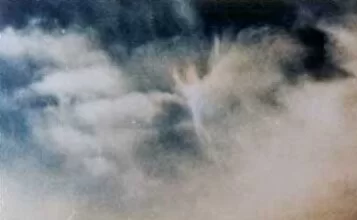At first read, Ezra Pound’s, “The Pact,” is a spicy poem. It sounds like a student that has been studying Whitman way too much in his past and is trying to make amends with this irritating poet, Whitman. However, as you read the poem a few times over, it is apparent that he does not truly detest Whitman, but is more in awe of him.
A Pact
by Ezra Pound

I make a pact with you, Walt Whitman –
I have detested you long enough.I come to you as a grown childWho has had a pig-headed father;
I am old enough now to make friends.
It was you that broke the new wood,Now is a time for carving.
We have one sap and one root –
Let there be commerce between us.
For Ezra Pound, Walt Whitman’s work is unavoidable. Pound is finally able to appreciate Whitman as an accomplished author. What do you think of the forth line of “A Pact”, “Who has had a pig-headed father”? I believe this is Pound’s referral to his own father who was, perhaps, not so supportive of his poetic works just as Whitman’s father was not of his. In “A Pact,” Pound is pointing out the similarities that he and Whitman share now that Pound is an adult. Pound does, however, point out that in spite of Whitman’s respected poetic ability, he (Pound) plans to shape his own poetry to make his work more refined than that of Whitman. He plans to “carve” out a name for himself. He does not wish to lie in Whitman’s poetic shadow, but instead he will take Whitman’s inventive style and fashion it into a work that is all his own and perhaps superior to Whitman’s rustic works. The over-all feel of “A Pact” is that Pound now appreciates Whitman’s works, but he doesn’t feel that Whitman requires any high accolades.
The following poem is by Wang Yin and is translated from the Chinese by Richard Terrill and Cheng Baolin.
“Walt Whitman”
He is simply chopping wood in my front yard.
I imagined him far less quiet,
like sunlight.
I have to squint to look at him.
I imagined him far less quiet,
not vaguely chewing a lea of tobacco,
He is not a butterfly
or a spoon or a plate
lying under an oak in Louisiana.
I imagined him far less quiet.
So it’s best for him to chop wood,
stand in my front yard, chop wood with a crack,
like sunlight
white and proud.
We squint our eyes to look at him.

Yin seems to put Whitman not only up on a pedestal but making him appear Christ-like. He refers to Whitman “like sunlight” twice and also says “we squint our eyes to look at him” twice. These images of Whitman as a heavenly being are far more positive than Pound’s resistance to even like Whitman much less give him the poetic respect he deserves. Yin says Whitman is not common like “a butterfly or a spoon or a plate.” Yin describes Whitman as extraordinary. Whitman is “white and proud.” This is very God-like imagery for Yin to use describing Whitman. It is curious to me that Yin repeats the line, “I imagined him far less quiet,” three times. What more did Yin expect from Whitman? He mentions “lying under an oak in Louisiana.” This appears to be in reference to Whitman’s poem, “I Saw in Louisiana a Live Oak Growing” from Leaves of Grass. That poem follows:
“I Saw in Louisiana a Live-Oak Growing”
by Walt Whitman
I saw in Louisiana a live-oak growing,
All alone stood it and the moss hung down from the branches,
Without any companion it grew there uttering joyous leaves of dark green,
And its look, rude, unbending, lusty, made me think of myself,
But I wondered how it could utter joyous leaves standing alone there without
its friend near, for I knew I could not,
And I broke off a twig with a certain number of leaves upon it, and twined
around it a little moss,
And brought it away, and I have placed it in sight, in my room,
It is not needed to remind me as of my own dear friends,
(For I believe lately I think of little else than of them,)
Yet it remains to me a curious token, it makes me think of manly love;
For all that, and though the live-oak glistens there in Louisiana solitary in
a wide flat space,
Uttering joyous leaves all its life without a friend a lover near,
I know very well I could not.


